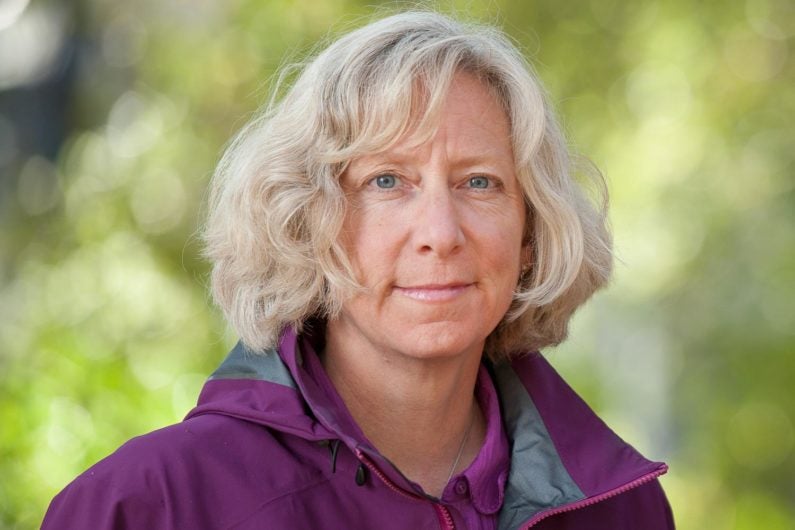Environmental work earns Gretchen Daily the Blue Planet Prize
Gretchen Daily is collecting the Blue Planet Prize in Tokyo for her work promoting practical conservation by revealing the value of nature to human well-being and development.
Biology professor Gretchen Daily is in Tokyo as one of this year’s winners of the Blue Planet Prize, an annual award for pioneers working to improve the state of the planet. The Blue Planet Prize, awarded by the Asahi Glass Foundation, has recognized two individuals or organizations each year since the Rio Earth Summit in 1992.
Daily, who is Stanford’s Bing Professor in Environmental Science, is joined as one of this year’s winners by Hans Joachim Schellnhuber, director of the Potsdam Institute for Climate Impact Research. Today (Oct. 19), the pair will each receive a prize of 50 million yen, about $450,000.
Daily’s research focuses on practical, scalable solutions to environmental problems. She works with governments, corporations and communities worldwide to open pathways to green growth that benefit both people and the planet.
“We often think in terms of the economy versus the environment,” said Daily, a senior fellow at the Stanford Woods Institute for the Environment. “In reality, nature is at the heart of economic prosperity – and if the values of nature are accounted for, we can drive open new pathways to green growth. We are seeing this shift in China and many other countries today.”
Practical solutions to global problems
Daily is being honored for her work creating an entirely new way of thinking about protecting nature and for her efforts to catalyze investments in nature through government, business and finance.
The field of study she founded, called countryside biogeography, illuminates the potential for nature to survive in human-dominated places such as in farming and ranching landscapes.
“Until the next asteroid hits Earth, it is humanity that will dictate the future course of all known life,” Daily said. “We have the power to destroy our life-support systems – and at present this power seems beyond our control.”
Daily’s 26 years of field work, focused in Costa Rica, has demonstrated that investments in nature must go beyond nature reserves. She said they are too small, too few, too isolated and too fragile to sustain more than a tiny fraction of Earth’s life and preserve its essential benefits to humanity.
Daily is working to spark those investments through the Natural Capital Project, a partnership among 250 groups around the globe, led from a global hub at Stanford in collaboration with The Nature Conservancy, World Wildlife Fund, and the University of Minnesota Institute on the Environment. Cofounded by Daily, the initiative aims to develop a systematic approach to weighing nature’s benefits. By placing a meaningful value on nature in the context of resource allocation, they are changing policy, finance and management decisions worldwide.
The Natural Capital Project’s open-source software is currently used in more than 185 countries to map and model valuable ecological resources, assess trade-offs in land- and water-use, and integrate both conservation and human development into investments.
Natural Capital Project
Daily’s work to improve the planet for humans and the planet’s diverse forms of life have earned her a place next to many renowned leaders as Blue Planet Prize recipients, including two past winners from Stanford: Harold Mooney, the Paul S. and Billie Achilles Professor of Environmental Biology, and Paul Ehrlich, the Bing Professor of Population Studies Emeritus and mentor to Daily during her time at Stanford as an undergraduate, graduate student and postdoctoral scholar.
“Gretchen turned out to be one of those rare students from whom you learn rather than teach,” Ehrlich said. “I’ve always been immensely proud of her accomplishments, including the Natural Capital Project, the single most important global conservation effort today.”
Daily said she hopes that the award will shine a light on the value of nature in conjunction with human health and prosperity. She is working with Steven Denning, former chair of the Stanford Board of Trustees and current chairman of General Atlantic, to scale up her work. Daily wants to “activate the engine of innovation across the university.”
“We are reaching for a world in which people and nature thrive together, through a new pathway of green and inclusive growth,” she said.

